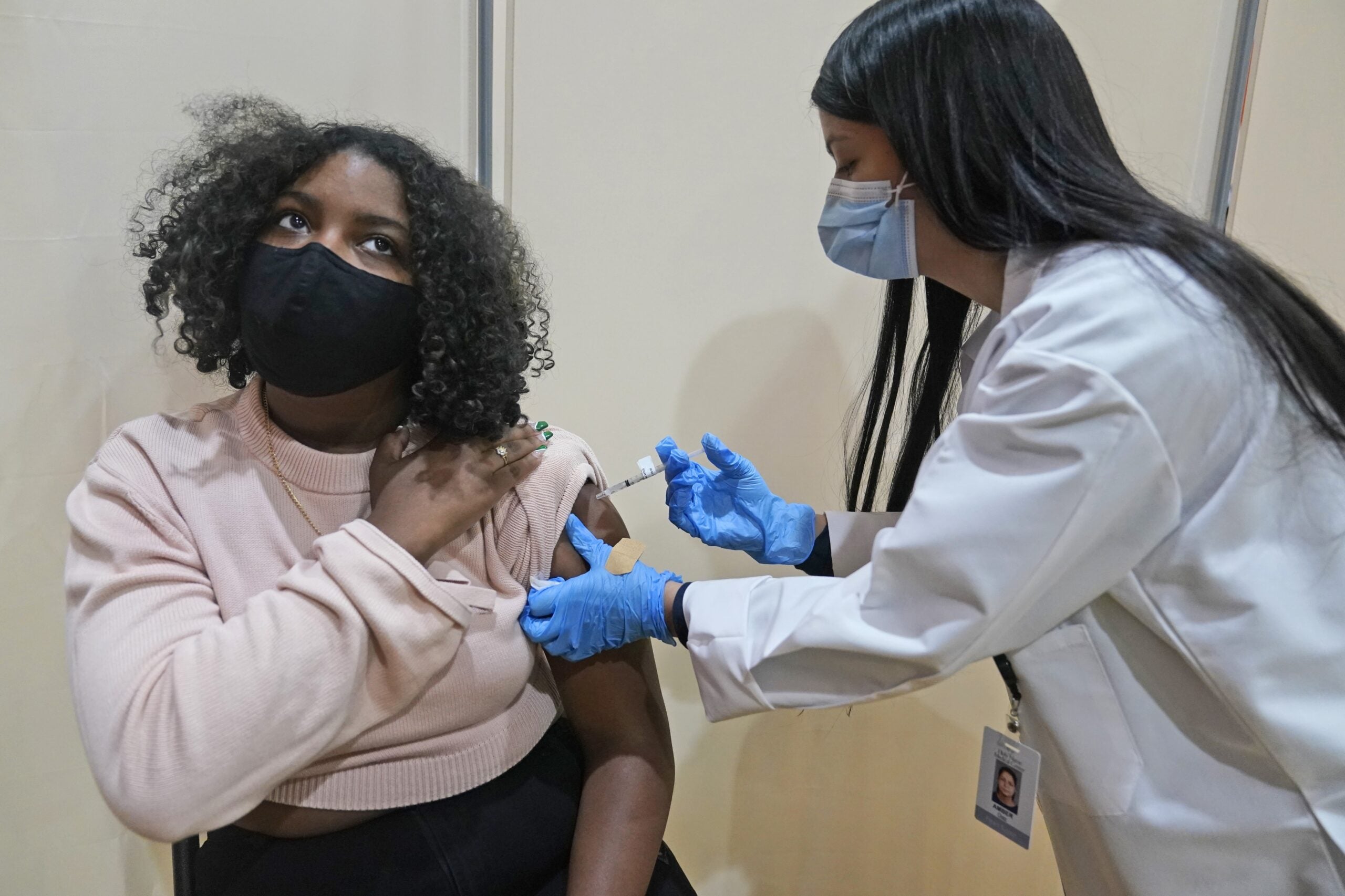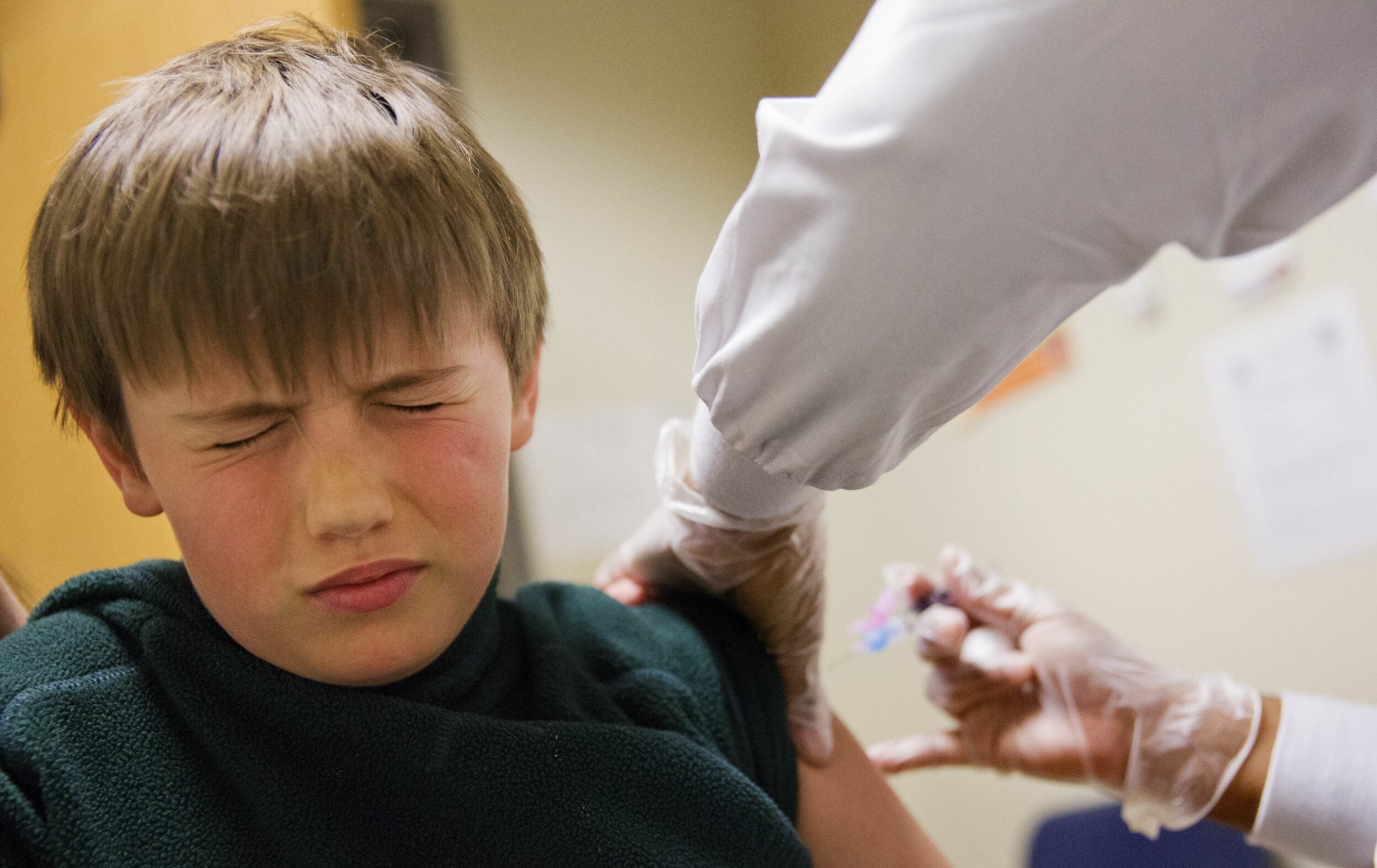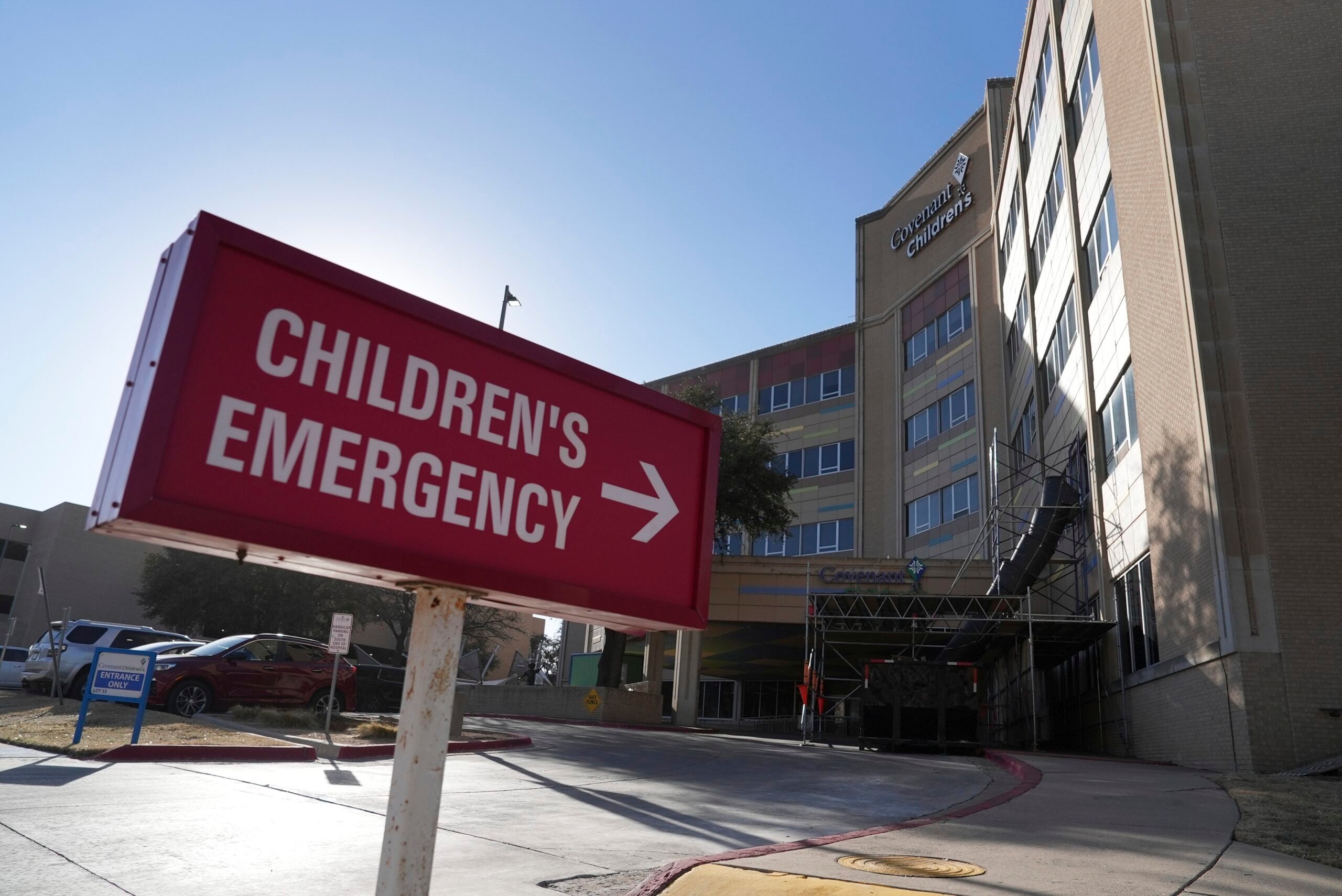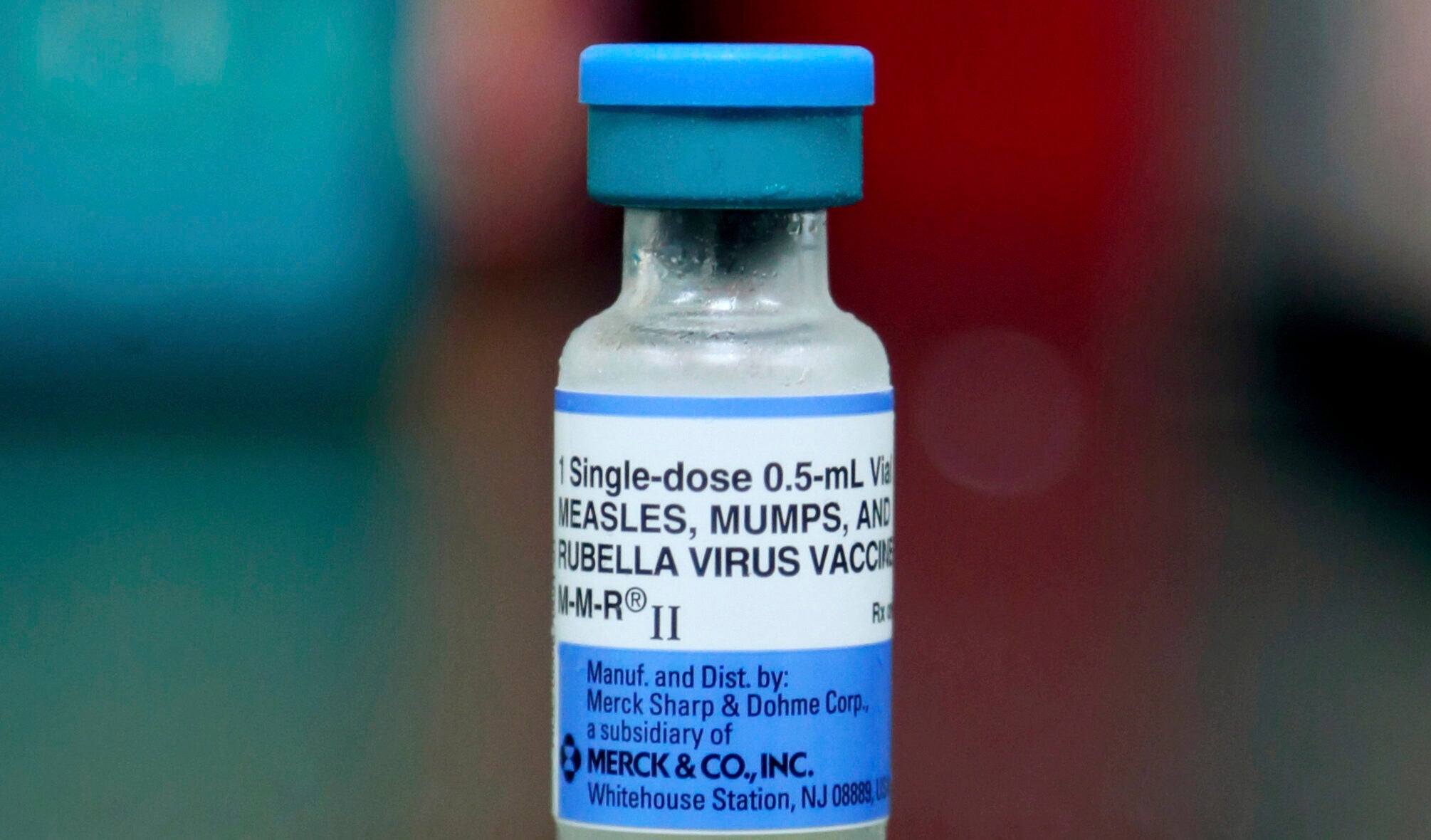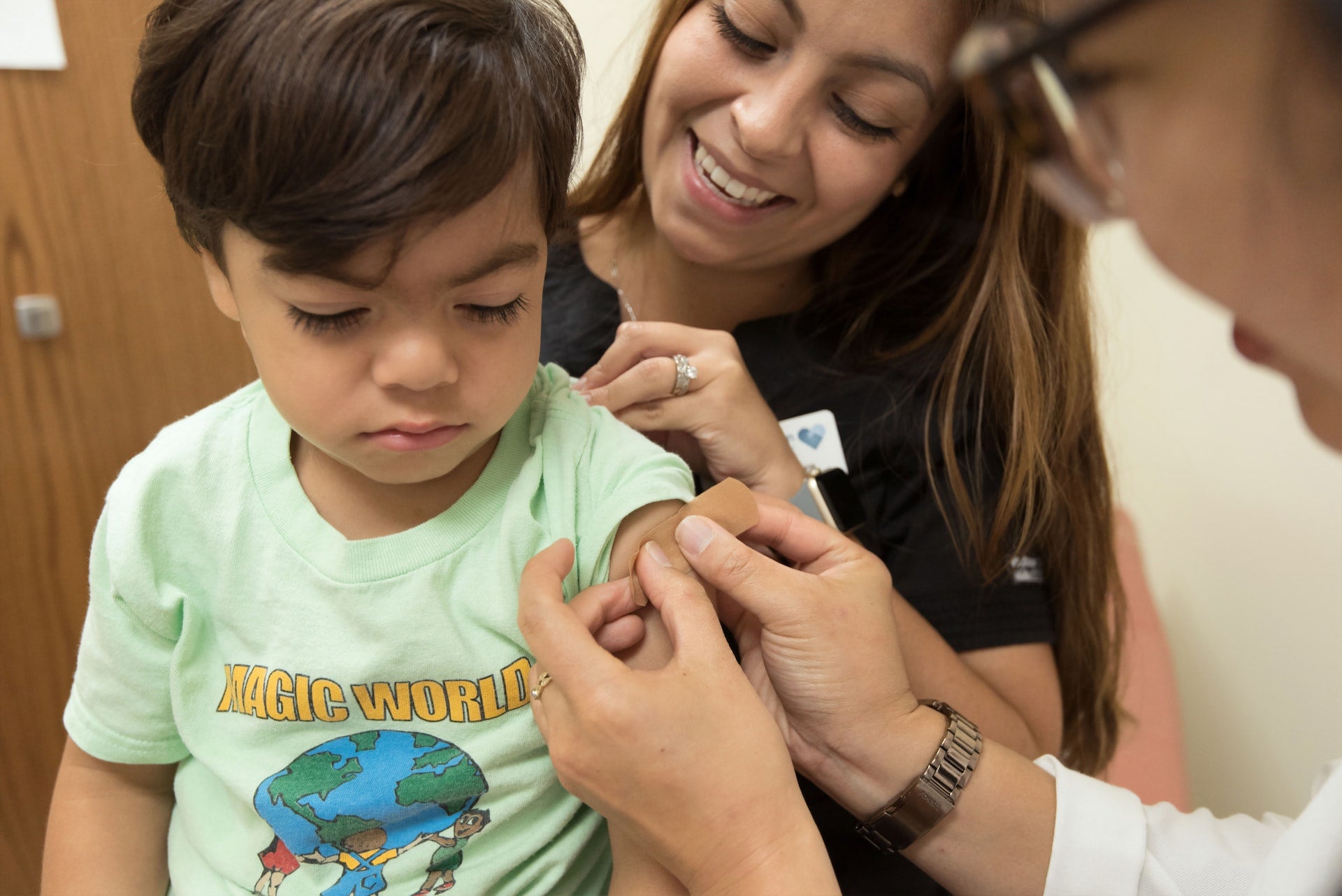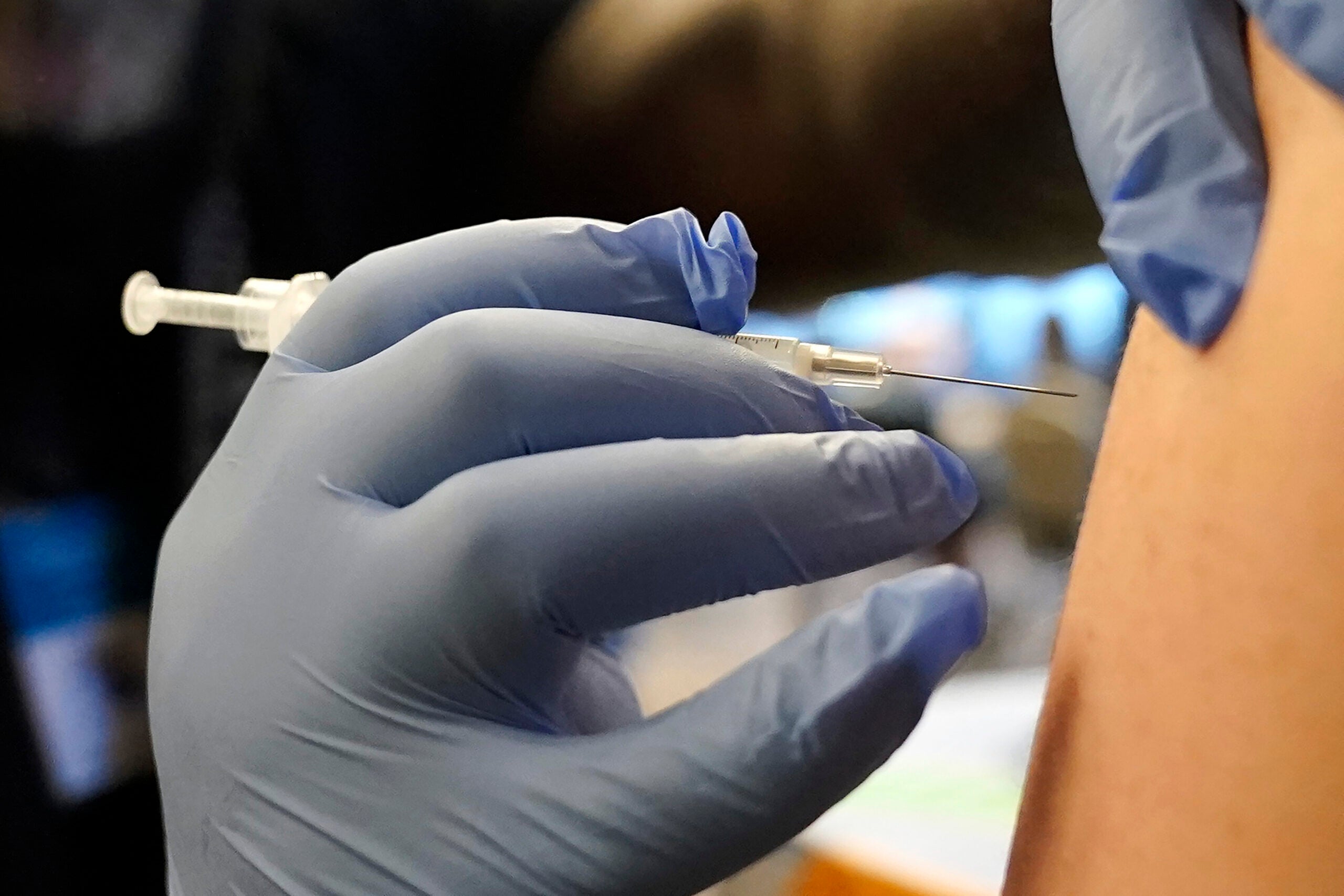Herd immunity is a phrase that’s been tossed around quite a bit in relation to how and when communities will see an end to the COVID-19 pandemic.
It refers to the phenomenon where an unvaccinated person is protected from the coronavirus because so many others around them are immune. But how important is it? And what do data from past outbreaks and vaccinations tell us?
While some estimates suggest communities can reach herd immunity when around 70 percent of the population is vaccinated, Dr. Matt Anderson, UW Health senior medical director of primary care, explains it isn’t an on-off switch.
Stay informed on the latest news
Sign up for WPR’s email newsletter.
“It’s really hard to say at what point we’ll reach it as though it’s a critical threshold,” Anderson said. “It’s more of a gradual decline in the case rates that we’ll see as we have more and more people being immune, and the best immunity is through vaccinations.”
Ajay Sethi is a professor of population health sciences at the University of Wisconsin-Madison and is faculty director of Master of Public Health Program. He said it will be clear that communities have reached herd immunity when there are no longer outbreaks of COVID-19 despite people returning to pre-pandemic daily activities like going maskless to concerts, sporting events, movie theaters, or restaurants without social distancing.
“In order for this to happen, most everyone will need to have protective immunity from either vaccination or past infection, but immunity from the latter may not be as long-lasting or durable,” he said.
Reaching herd immunity isn’t absolutely critical to our public health, Sethi said, but it really depends on how well the virus is contained.
“So long as transmission of SARS-CoV-2 in the community is controlled and reduced to very low levels and hospitalizations, and deaths due to COVID-19 occur rarely, if at all, then COVID-19 will no longer be a threat to public health,” he said.
Anderson added that by not reaching herd immunity, there is a greater risk of COVID-19 mutations and variants that could evade protections from current vaccines.
“It’s just going to end up with more people being sick, which is not what we want,” he said.
As COVID-19 vaccines have rolled out in recent months, WPR’s WHYsconsin has heard plenty of questions from our audience about herd immunity, vaccine effectiveness and use among children. Anderson and Sethi answered many of them.
Editor’s note: The following answers have been edited for length and clarity:
Vaccines And Children
Where are we with approval?
Ajay Sethi: In September, Pfizer is planning to apply for authorization from the U.S. Food and Drug Administration to expand eligibility of the Pfizer-BioNTech COVID-19 vaccine to children as young as 2 years.
Matt Anderson: If you extrapolate from there, it could be available as early as October.
Will there be enough supply if/when kids in this age group become eligible?
AS: Hopefully. Globally, there is great demand for all COVID-19 vaccines, including the Pfizer-BioNTech COVID-19 vaccine. However, the recent announcement by Moderna that their COVID-19 vaccine is also safe and effective in children as young as 12 years means that we could have two vaccination options for many children very soon.
[[{“fid”:”1506116″,”view_mode”:”full_width”,”fields”:{“format”:”full_width”,”alignment”:””,”field_image_caption[und][0][value]”:”%3Cp%3EIn%20this%20Thursday%2C%20May%2013%2C%202021%2C%20file%20photo%2C%20children%20ages%2012%20to%2015%20wait%20to%20get%20their%20vitals%20checked%20before%20getting%20their%20Pfizer%20COVID-19%20vaccine%20at%20Families%20Together%20of%20Orange%20County%20in%20Tustin%2C%20Calif.%20%3Cem%3EJae%20C.%20Hong%2FAP%20file%20photo%3C%2Fem%3E%3C%2Fp%3E%0A”,”field_image_caption[und][0][format]”:”full_html”,”field_file_image_alt_text[und][0][value]”:”Children ages 12 to 15 wait to get their vitals checked before getting their Pfizer COVID-19 vaccine at Families Together of Orange County”,”field_file_image_title_text[und][0][value]”:”Children ages 12 to 15 wait to get their vitals checked before getting their Pfizer COVID-19 vaccine at Families Together of Orange County”},”type”:”media”,”field_deltas”:{“1”:{“format”:”full_width”,”alignment”:””,”field_image_caption[und][0][value]”:”%3Cp%3EIn%20this%20Thursday%2C%20May%2013%2C%202021%2C%20file%20photo%2C%20children%20ages%2012%20to%2015%20wait%20to%20get%20their%20vitals%20checked%20before%20getting%20their%20Pfizer%20COVID-19%20vaccine%20at%20Families%20Together%20of%20Orange%20County%20in%20Tustin%2C%20Calif.%20%3Cem%3EJae%20C.%20Hong%2FAP%20file%20photo%3C%2Fem%3E%3C%2Fp%3E%0A”,”field_image_caption[und][0][format]”:”full_html”,”field_file_image_alt_text[und][0][value]”:”Children ages 12 to 15 wait to get their vitals checked before getting their Pfizer COVID-19 vaccine at Families Together of Orange County”,”field_file_image_title_text[und][0][value]”:”Children ages 12 to 15 wait to get their vitals checked before getting their Pfizer COVID-19 vaccine at Families Together of Orange County”}},”link_text”:false,”attributes”:{“alt”:”Children ages 12 to 15 wait to get their vitals checked before getting their Pfizer COVID-19 vaccine at Families Together of Orange County”,”title”:”Children ages 12 to 15 wait to get their vitals checked before getting their Pfizer COVID-19 vaccine at Families Together of Orange County”,”class”:”media-element file-full-width”,”data-delta”:”1″}}]]
Vaccine Protections
If the vaccines protect from more severe cases of COVID-19, have we seen a decrease in the severity of cases?
AS: Yes. There are many examples around the world of rates of hospitalization and death declining as COVID-19 vaccination rates have increased. At present, in the U.S., almost all COVID-19 cases are occurring in people who are unvaccinated.
Do you attain more immunity if you get shots from two different sources?
AS: Scientists are studying this. Preliminary results from a recent trial of more than 600 people in Spain showed that people vaccinated with both the Oxford-AstraZeneca and Pfizer-BioNTech COVID-19 vaccines had very potent immune responses. But note that the Oxford-AstraZeneca vaccine is not authorized for use in the U.S. Other mix and match studies are being carried out in the United Kingdom.
MA: There is no recommendation to do that. Actually, we would recommend against doing that at this point. It could increase the risk for side effects. It’s not been studied in that way.
In someone who’s tested positive for the coronavirus, can we tell the difference between someone who has antibodies from the vaccination and from the virus?
MA: There are two different types of antibody tests. One looks at a particular part of the virus that is relative to the natural infection. The other looks at the spike protein component, which is what the vaccine is for.
AS: Healthcare providers may order a SARS-CoV-2 antibody test to determine if someone has evidence of past COVID-19 infection, but the FDA does not recommend these tests be used to assess immunity after COVID-19 vaccination.
If a person has COVID-19 and doesn’t know it, is it dangerous for them to get the vaccine?
AS: No, it is not dangerous to the recipient of the vaccine. But if someone has COVID, they should be in isolation so that they don’t unknowingly infect someone on their way to or at the vaccination site.
Booster Shots
What is the science so far on booster shots?
AS: The protective immunity achieved through vaccination will lessen over time. If it decreases to the point where people are able to be infected with SARS-CoV-2 despite having been vaccinated, a booster will be needed to rebuild one’s immunity against the virus.
In the future, new variants may also require additional shots. In this case, these vaccines will serve to boost existing immunity and also be updated so that people can be protected against newer strains of SARS-CoV-2.
MA: The clinical trials for Pfizer and Moderna and others are ongoing, and they’re following those people who were in the trials who got the vaccine to see their antibody levels (and answer questions like) what happens? Do they get COVID at a different rate than people who weren’t vaccinated? It’s still evolving.
Will we need them and if so, when?
AS: It is unknown exactly when boosters will be needed, but it is expected that they will be needed at some point in the future.
MA: It’s sounding like probably in a 12-month or so time frame it may be necessary for us to have booster shots, but we’re still waiting to see. We heard really good six-month data from those trials, but we haven’t quite had the nine-month data yet.
